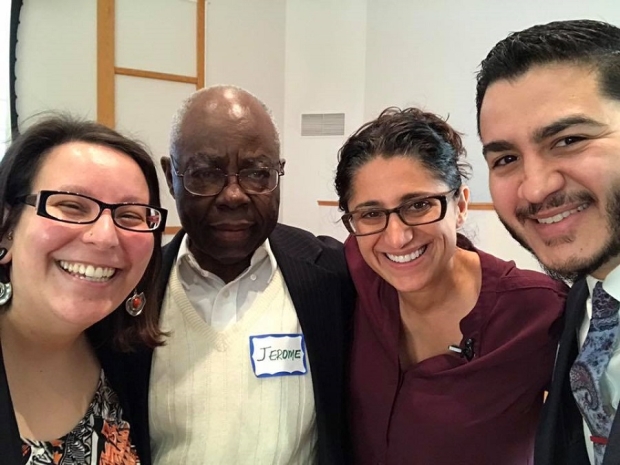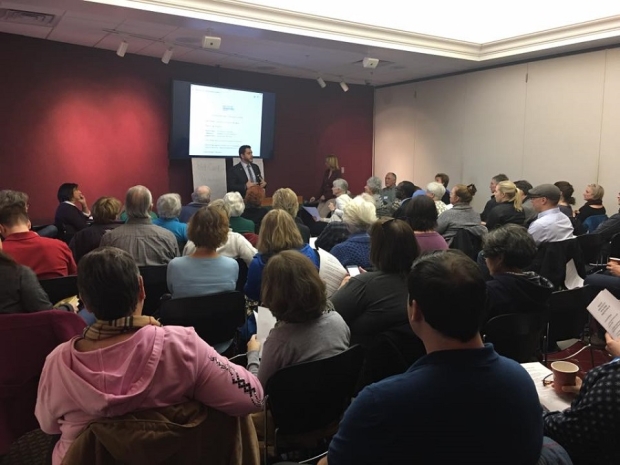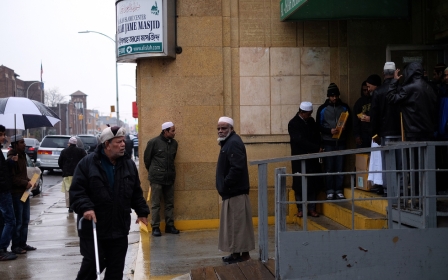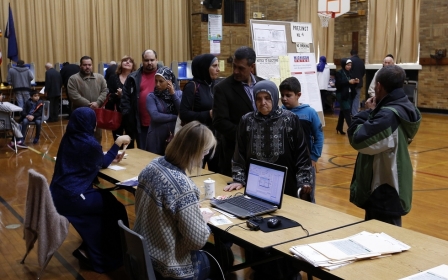America considers electing its first Muslim governor: Abdulrahman El-Sayed
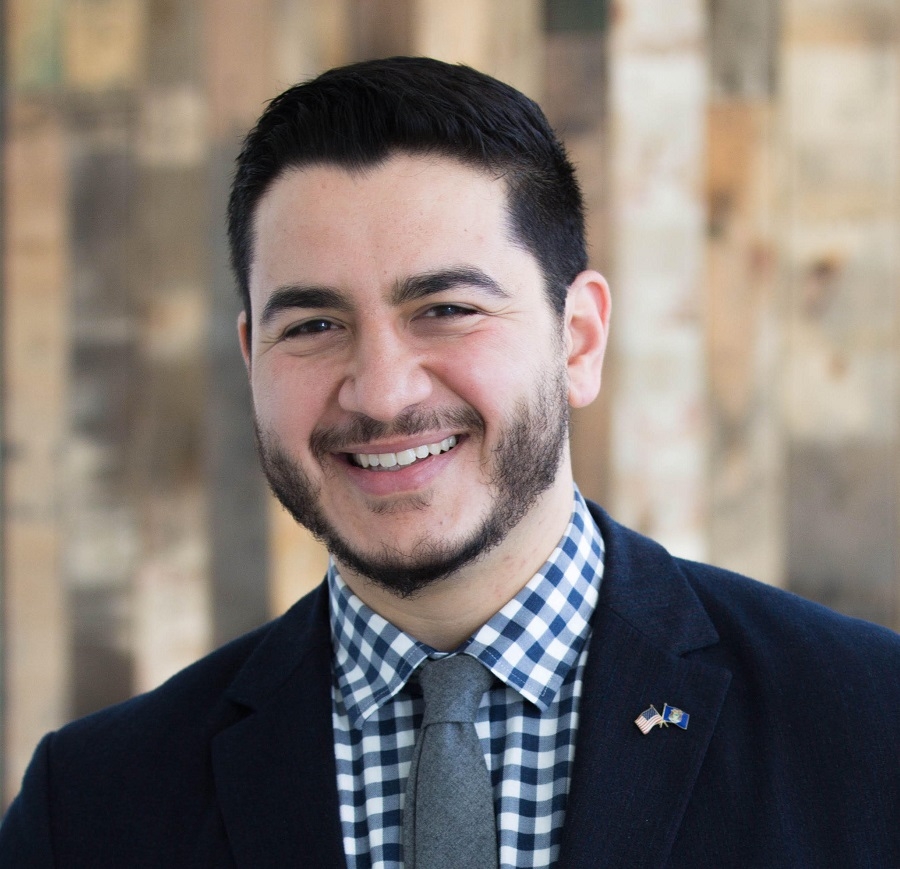
DETROIT, Michigan - Abdulrahman El-Sayed appears to have a restless soul. Born and raised in Michigan to Egyptian-American parents, at just 32 years of age he has already given up careers as a doctor, an epidemiology professor and being the director of Detroit's health department.
Yet the time has come for him to make his boldest move yet: beginning his campaign to run for governor of Michigan. Since El-Sayed has never held elected office, it is an ambitious endeavour.
If he wins, he would become the first Muslim governor in the United States, at a time when some of the country’s top politicians have singled out Islam as a public enemy.
The candidate is hoping his position as a political outsider will appeal to Michigan voters disillusioned by the status quo.
“As much as folks will look on paper and say ‘he’s young and he’s brown and his name is Abdul,' they’re not in the rooms when we have conversations with real people,” said El-Sayed, who is currently on a state-wide tour.
Voters want to “take back our politics from the same old candidates who are missing the boat," he added.
Economic woes
It does seem like politicians are missing a lot. Residents of Flint, half of whose constituents are black, have been drinking tainted water for years. This is in part due to "deeply embedded institutional, systemic and historical racism,” a Michigan civil rights report found.
Unemployment across the state has gone up in the past year, and almost a fifth of Michigan’s residents are living in poverty. Additionally, a loss of manufacturing jobs has people worried about their futures.
Solving these issues should be a top priority for the state’s leaders, according to El-Sayed.
Flint water crisis
El-Sayed graduated from the University of Michigan in 2007. There he met and married his college sweetheart, Sarah, who is also a physician.
He was raised by his father Mohamed and his stepmother Jackie and said that he has a very diverse family.
“[I was] raised in a half-white, half-Egyptian household. I have family who is African American and white and Asian and families of all different faiths and no faiths at all," he said. "I’m honoured and blessed to see such a swathe of American society in my own living room."
He is a Rhodes scholar who earned his PhD from Oxford University and a medical degree from Columbia University.
'As much as folks will look on paper and say ‘he’s young and he’s brown and his name is Abdul,' they’re not in the rooms when we have conversations with real people'
- Abdulrahman El-Sayed
At the age of 30, he left a tenure-track position as a public health professor at Columbia to take up a post as health director of Detroit. But after less than two years on the job, he quit to run for governor. Speaking to Middle East Eye, he said the Flint water crisis was what pushed him to pursue public office.
“I was rebuilding a health department that had been shut down, and then watching as the same system... poisoned kids in a city that looked a lot like the city I was trying to protect,” he recalled. "Rather than cutting corners, I thought the best service i could do in this moment was to run for office."
“The work of government has to be for the people, by the people, about the people, and not run like a business,” he added.
National context
Growing up in Michigan, El-Sayed said he was teased lightly for being Muslim, but things took a more racial/religious tone after the 9/11 attacks in New York.
Since then, many Muslims feel the alienation has only become worse, and hate crimes have gone up since last year’s election.
'The work of government has to be for the people, by the people, about the people, and not run like a business'
- Abdulrahman El-Sayed
The symbolism of becoming the first Muslim governor in the US in this political climate is not lost on El-Sayed, who said one can’t ignore the “troubling conversations” the country had been having prior to the election of President Donald Trump in November.
Such discussions “were trampling on the ideals many of us hold dear, [including that] all men are created equal,” he said.
Asked whether he was concerned about his chances in a state that went to Trump, El-Sayed pointed out that “he won by the slimmest of margins,” 13,107 votes, to be exact.
“His win has more to do with a failure of the Democratic party rather than him as an individual,” El-Sayed said. “I know a lot of folks who voted for him after voting for [former US president Barack] Obama twice because the Democratic party forgot to talk about poor and working-class issues.”
That said, some commenters on Sayed’s social media accounts have denigrated the candidate, calling him a “Trojan horse” and asserting that Muslims cannot co-exist with Americans of other faiths.
'All men are created equal'
- Abdulrahman El-Sayed
To that, El-Sayed responded: “Those comments are from a very small number of people… you never beat the trolls. I hope to be a governor for everyone. I know that it can be done. We have to come together right now for our future.”
More involvement
Currently, there are only two Muslims in Congress.
But El-Sayed is not the only Muslim American who has been motivated to get involved in politics after Trump’s election.
'I hope to be a governor for everyone. I know that it can be done. We have to come together right now for our future'
- Abdulrahman El-Sayed
On a more local level, Pious Ali, a Ghanaian immigrant, recently became the first Muslim on Portland, Maine’s city council.
Sarah Khatib is also running for a seat on the planning board of Walpole, Massachusetts, whose elections are in June.
The 41-year-old, who has a masters in structural engineering, told local media, "You know we are a target of a lot of unfortunate rhetoric and even physical assaults. And I think, yeah, it can be a catalyst, you know."
She and others have been getting help with their campaigns from a non-profit group that recently launched an initiative to get Muslims to run for office nationwide.
In a statement in February, the Massachusetts-based group’s co-founder Shaun Kennedy explained: “Jetpac is not interested in what party you want to run for, or for what office - we want to make sure you’re ready to win before you even declare your candidacy.”
Jetpac received over 120 responses to their open call after only one day, the Wall Street Journal reported.
What lies ahead
Back in Michigan, the gubernatorial playing field is heating up.
So far, physician Jim Hines is the only Republican who has declared his intention to run for the seat.
But El-Sayed is already up against a businessman named Bill Cobbs and former prosecuting attorney Gretchen Whitmer for the Democratic primary.
There is also speculation that US Representatives Dan Kildee or Debbie Dingell could run for governor. These names are popular among the Muslim community, but El-Sayed said that he's confident of his stance.
“I honestly think I’m going to win,” he said.
The Democratic primaries will not be until August 2018, ahead of a November election.
But the financial health of El-Sayed’s campaign will become more clear in a few months, when it has to report donation figures in June.
For now, the plan, according to communications director Adam Joseph, is to “visit every corner of the state and talk to every voter who is willing to speak to us".
New MEE newsletter: Jerusalem Dispatch
Sign up to get the latest insights and analysis on Israel-Palestine, alongside Turkey Unpacked and other MEE newsletters
Middle East Eye delivers independent and unrivalled coverage and analysis of the Middle East, North Africa and beyond. To learn more about republishing this content and the associated fees, please fill out this form. More about MEE can be found here.


